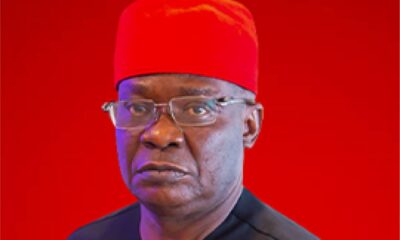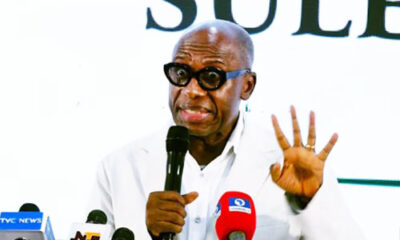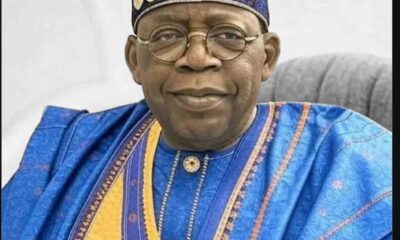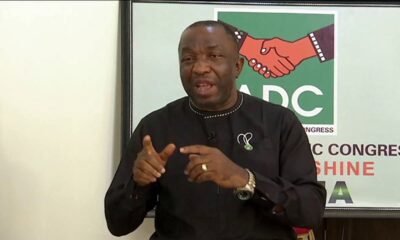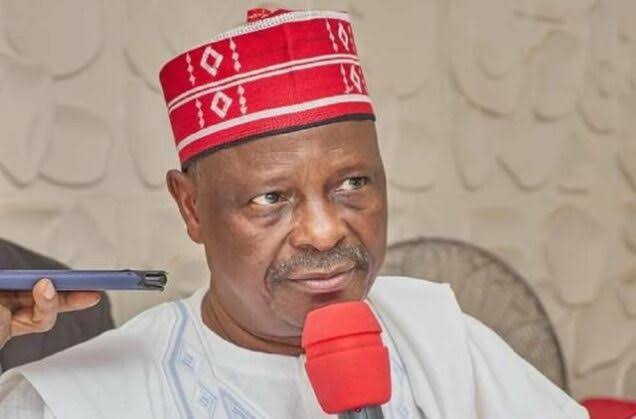Opinion
Ribadu’s tantrums: A dent on Nigeria-Canada relations, by Lemmy Ughegbe
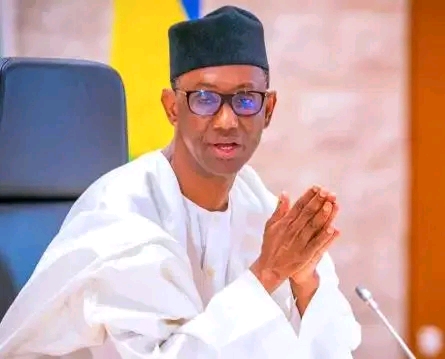
Mallam Nuhu Ribadu’s recent angry outbursts regarding Canada’s visa denials to General Christopher Musa and his team constitute a regrettable diplomatic error, harming Nigeria’s global standing. His denunciation of Canada is a clear breach of diplomatic principles, as defined by international law and standards. International law solely empowers sovereign states to decide on visa applications.
The 1963 Vienna Convention on Consular Relations grants states authority over border entry, restricted only by national security, immigration laws, and foreign policy considerations. Article 12 of the International Covenant on Civil and Political Rights (ICCPR) also acknowledges a state’s border control right, contingent on legal compliance.
General Musa’s trip to Canada was planned to attend a ceremony honouring war veterans. Although the reasons for Canada’s barring of General Musa and some delegates remain unclear, this action shouldn’t be interpreted as hostility toward Nigeria. Diplomatic visa denials are typically addressed diplomatically, not with provocative statements from security officials. Ribadu’s comments and his bypassing of official diplomatic channels breach Article 41 of the 1961 Vienna Convention, which mandates that foreign officials uphold the host country’s laws and avoid meddling in its internal affairs. Ribadu’s bypassing of proper diplomatic channels risked damaging Nigeria’s relationship with Canada and harming its diplomatic reputation.
The CDS and his team’s Canadian visa applications may have been unsuccessful due to the Nigerian government’s failure to provide a supporting note verbale. This would represent a serious failure by Nigeria if accurate. The Canadian Government is under no obligation to seek out Nigeria’s Foreign Affairs Ministry for supporting documentation. Such an act would be a privilege, not a right. Shouldn’t Nigeria and its applicants have approached the visa application process with more seriousness and meticulousness, ensuring complete documentation beforehand?
Furthermore, this incident raises important concerns about how Nigeria manages its diplomatic relations. Effective diplomacy requires strategic thinking, respect for established channels, and a commitment to resolving international concerns through negotiation rather than confrontation. Ribadu’s approach, rather than fostering goodwill, created unnecessary tension. His actions undermine the credibility of Nigeria’s diplomatic apparatus, making the country appear reactionary and unprepared to handle foreign affairs.
Nigeria and Canada have a long-standing relationship encompassing diplomatic ties, economic partnerships, trade, security, development aid, and educational exchange. Canada has continually aided Nigeria in counterterrorism, governance reforms, and humanitarian aid.
Ribadu’s rash statement may damage relationships and undermine essential collaborations. Denial of a visa does not justify actions that could unduly harm diplomatic ties. Nigeria and Canada enjoy mutually beneficial relationships in trade, education, and bilateral affairs, which are vital to numerous Nigerians and businesses. His remarks are an unacceptable breach of international law and diplomatic protocol, constituting meddling in a sovereign country’s internal matters. Canada’s immigration policies, like those of all countries, are based on national interests; Nigerians do not have an automatic right of entry.
Additionally, Nigeria’s response to this situation should serve as a case study for future diplomatic engagements. Lessons must be learned to ensure that officials adopt a more measured and strategic approach. Government agencies should prioritise engagement through formal channels and be proactive in addressing potential roadblocks before they escalate into diplomatic incidents.
A more constructive reaction would have included direct communication between Nigeria’s Foreign Affairs Ministry and Canada’s High Commission in Abuja to clarify any misunderstandings and, if necessary, seek reconsideration.
Diplomatic best practices require a measured approach to visa denials.
The Nigerian High Commission in Ottawa ought to have asked the Immigration, Refugees and Citizenship Canada (IRCC) for clarification and used diplomatic channels to request reconsideration. Even with Canada’s decision standing, a more measured, professional reaction would have been superior to public antagonism. Ribadu’s seeming usurpation of the duties of the foreign affairs minister highlights a troubling lack of policy coherence within Nigeria’s government. President Tinubu’s government should ensure only approved diplomats manage international relations, following the constitution and foreign policy. Concerns should have been addressed through diplomatic correspondence and talks. The unguarded nature of Ribadu’s outburst exposes a governance model that values emotion over a calculated strategy.
Ribadu’s public denouncement of Canada’s visa policy was a regrettable mistake, violating diplomatic protocols and creating a negative precedent for Nigeria’s global interactions. His statement is a breach of diplomatic protocol and could worsen relations with a strategically important partner. Global leaders require diplomatic skill, strategic thinking, and a thorough understanding of international norms. Nigeria’s foreign policy should focus on inter-institutional collaboration rather than personal disputes. Ribadu and other officials must put national interests before personal feelings and observe established diplomatic procedures. A formal apology and retraction of his remarks would wisely mitigate lasting diplomatic damage and restore Nigeria’s international credibility.
The international community is watching Nigeria’s diplomatic approach closely, considering the wider effects. The continuation of such incidents risks deterring foreign investors, reducing diplomatic activity, and weakening Nigeria’s international standing. To be taken seriously internationally, Nigeria must use diplomatic finesse. Consequently, the government needs to strengthen training for high-ranking officials in diplomatic etiquette and international relations, prioritising Nigeria’s long-term interests over personal issues in their responses.
In addition, the influence of media on international opinions is significant and should not be overlooked. Public officials should carefully consider the international implications of their statements. With today’s rapid digital spread of information, careless comments can have lasting repercussions. Global governments understand the importance of strategic communication; Nigeria should follow suit. Measured PR and diplomacy are better than impulsive, hostile pronouncements when dealing with sensitive matters.
In conclusion, Ribadu’s tantrum over Canada’s visa decision not only lacked diplomatic tact but also posed a risk to Nigeria’s international relationships. To conduct effective diplomacy, one must be patient, plan carefully, and follow international protocols. Nigeria needs to proactively strengthen diplomatic training, prioritise institutional cooperation, and cultivate international goodwill instead of antagonism. Those in authority must understand the gravity of their words; even a small mistake can lead to substantial ramifications. If Nigeria hopes to maintain and strengthen its standing in the global arena, professionalism and strategic thinking must guide its diplomatic approach.
Lemmy Ughegbe, Ph.D
Email: [email protected]
WhatsApp ONLY: +2348069716645
-

 National News2 days ago
National News2 days agoBreaking: FG declares June 6, 9 public holidays to mark Eid-ul-Adha celebration
-
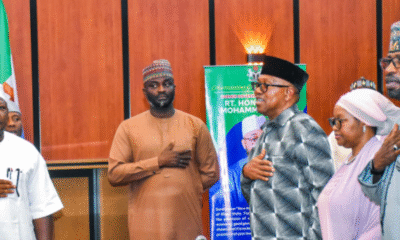
 Politics1 day ago
Politics1 day agoPeter Obi visits Niger, donates ₦20m to flood victims
-
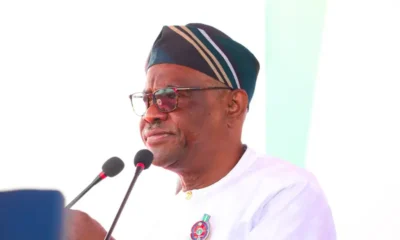
 Politics2 days ago
Politics2 days agoGround rent: I will not stop stepping on big toes – Wike
-

 Politics2 days ago
Politics2 days agoNo one can sack me from PDP – Wike
-
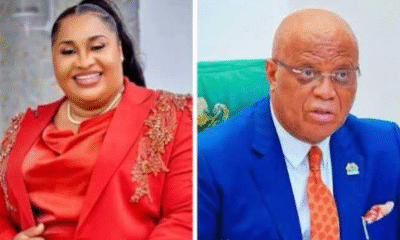
 Metro News2 days ago
Metro News2 days agoEno’s daughter manipulated by false prophets – AKSG
-
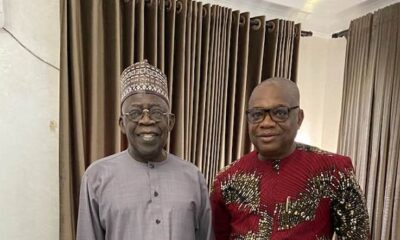
 Politics1 day ago
Politics1 day agoSack some ministers, security chiefs – Orji Kalu tells Tinubu
-

 National News1 day ago
National News1 day agoForum calls on Tinubu’s loyalist to defect to PDP
-

 National News2 days ago
National News2 days agoGovernor Sule: Transforming Nigeria’s political culture from rivalry to partnership, by Ali Abare


